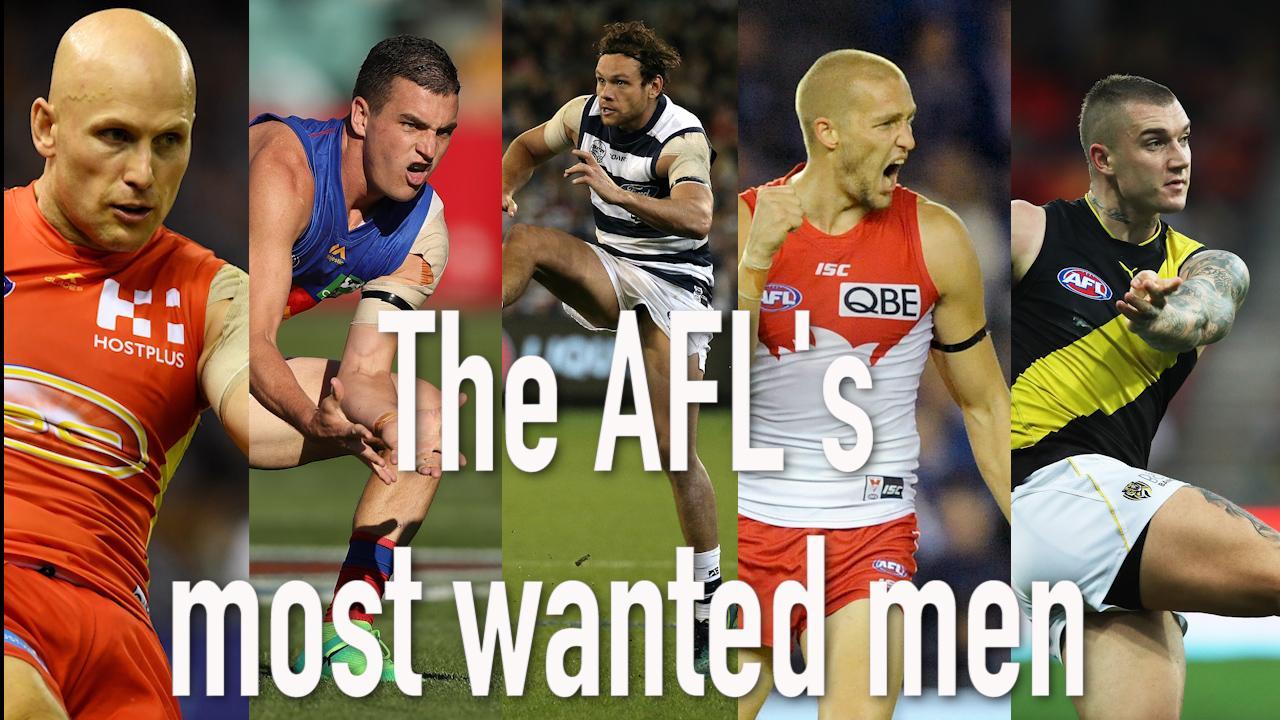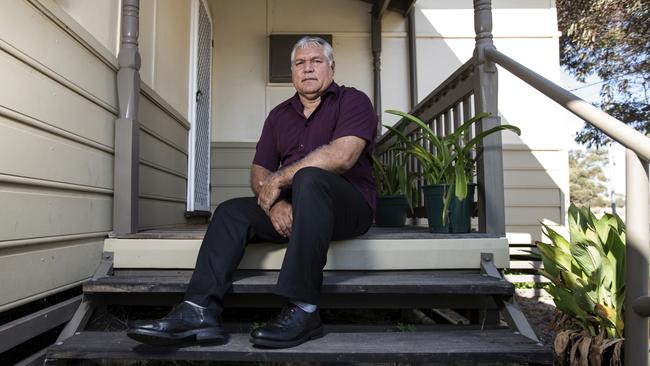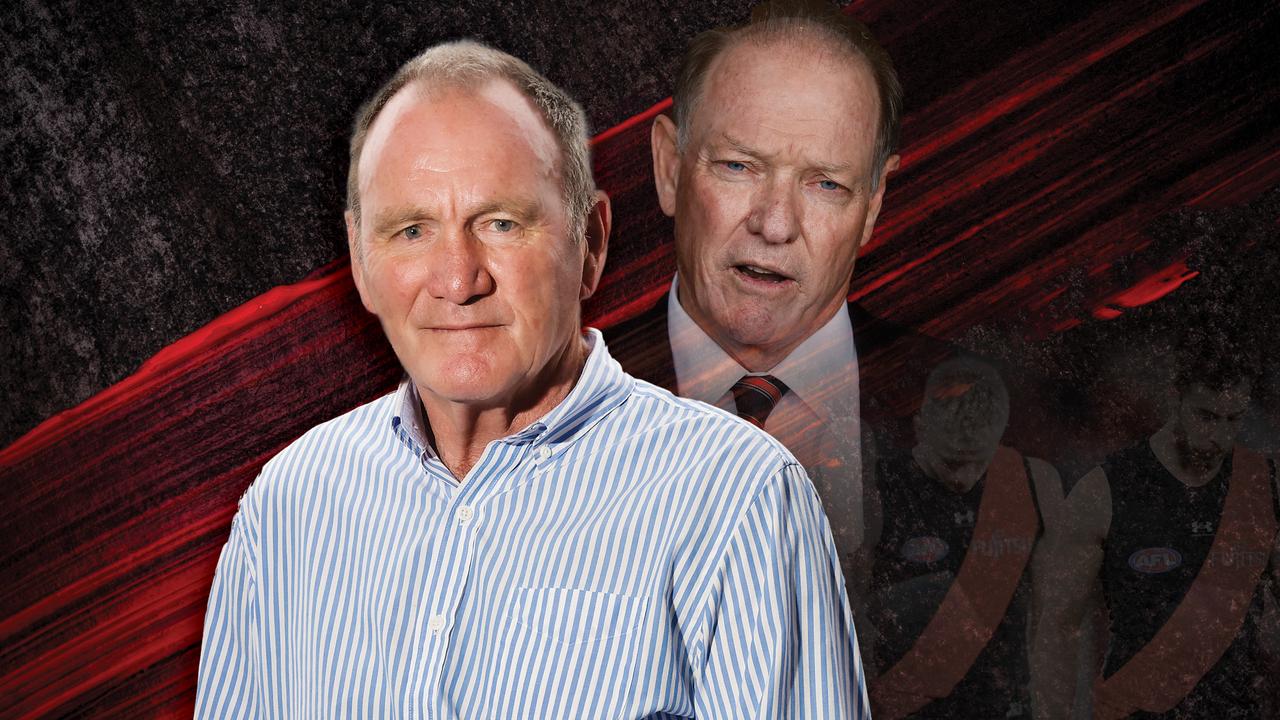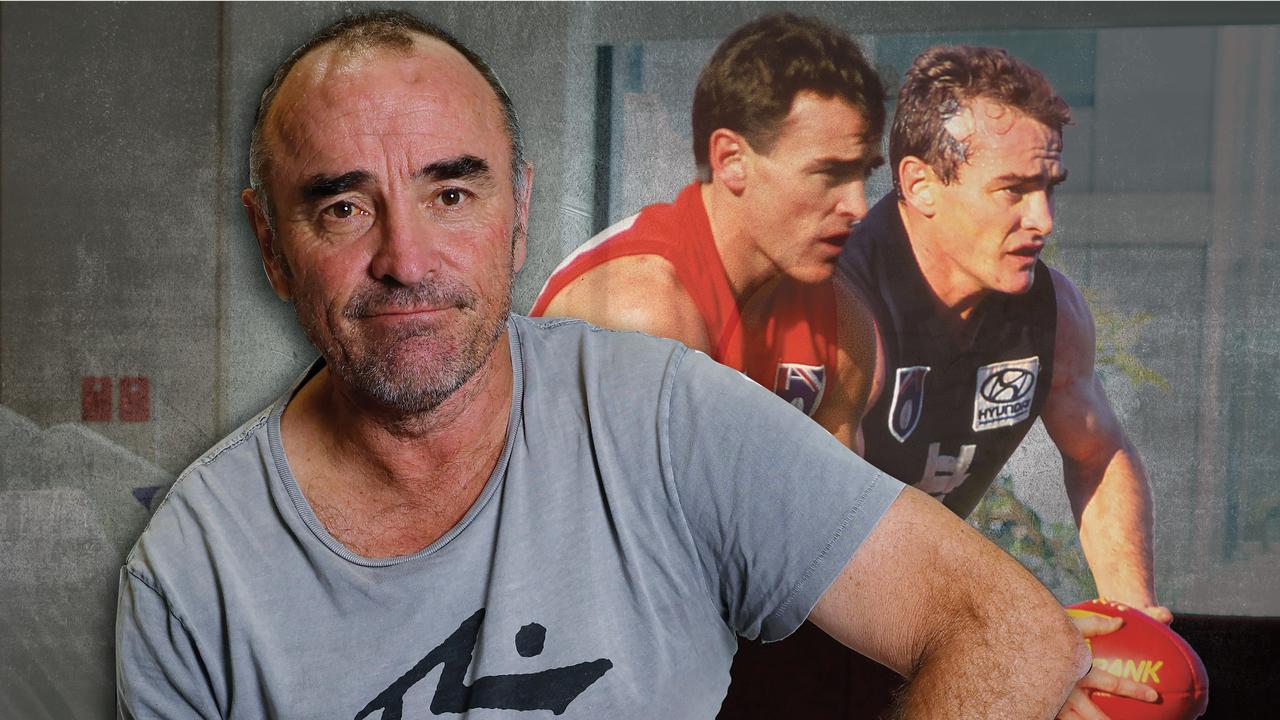Willie Dick gave up promising AFL career after only seven games
NOONGAR man Willie Dick played in Essendon’s 1992 reserves flag and could have been anything, but after only seven AFL games he disappeared, writes MARK ROBINSON.

Mark Robinson
Don't miss out on the headlines from Mark Robinson. Followed categories will be added to My News.
KEVIN Sheedy called them “Hollywood” — the good-lookers — and in Sheedy’s time they were Leon Baker, Gavin Wanganeen and Willie Dick.
Two of them are legends of the red and black and the other is a might-have-been.
Willie Dick played only the one season at Essendon — seven games, in fact — before family forced him back home to Western Australia.
It was 1992, the year before the “Baby Bombers” delivered Sheedy his third premiership.
Willie was from Goomalling, a wheatbelt town near Northam. Today’s population is 499. It also has produced the Carr brothers, Josh and Matthew.
Willie, now 51, is a Noongar and had the football traits for which Noongar men are renowned.
“He had flair, good touch, great evasion, beautiful kick — if he had stayed he probably would have played 100-plus games, like Dean Rioli,’’ Sheedy said.
“He’s not unlike Rioli. He was quicker, but it depends on what you call quickness. All Riolis are quick, but put them over 100m they will get beaten by a lot.
“Put them over 5m and they’re quick over three angles.”

Sheedy said there were only about 35,000 Noongar people alive today — presumably half of them women — and they had produced 54 AFL players.
In 2012, Willie, a half-forward, was named in the best 25 WAFL players from the past 25 years and, Sheedy said, Willie is in contention to be picked in the all-time greatest Noongar team, which will be selected next year by Barry Cable, John Todd and Mal Brown, with Sheedy as a consultant.
He was champion at home, yet like hundreds, maybe thousands of indigenous youngsters, he will always be a might-have-been in Victoria.
He arrived at the Bombers at age 26 from the Perth Football Club with his wife, Delys, and their three children, William who was five, Dean, three and Dannielle, one.
“I got a job with the Danihers in their cleaning business,” Willie said this week.
“Because we’d start at 6am, I’d leave home at 5.30am, do my work, go to training and then get home at 8.30 at night.
“The kids wouldn’t see me through the week. (Delys) had it pretty hard. It was up to her to look after the kids and I’d only see her on the weekends and one of those days was when we played.’’

Delys and the kids returned home shortly before the 1992 season ended and, despite a two-year offer to stay, Willie said no.
“I had to sacrifice my footy career, you know. She wasn’t happy over there so we came back over here.”
Willie played in the reserves premiership team in ’92 alongside James Hird, Joe Misiti and Mark Mercuri and a veteran named Terry Daniher.
Wanganeen, who was then 19, described Willie as “very talented, a lovely, lovely fellow, one of the nicest guys you’d ever meet”.
He added: “He was very silky, very football smart. When he got the footy, he made the game slow down. He made time and that says to me, once he adjusted and got a year or two in the system, he would have been almost Daniel Wells-like, just smooth.
“I’m interested to know why he went back.”
Family?
“Yeah, that rings a bell.”
Michael Long, who was 22 in 1992, had a better memory.
“He shouldn’t have went home,” Long said.
“I reckon his wife wanted to go back home, that’s what I remember. He could play.
“He could have forged a long career at the Bombers.
“We always had the saying ‘Kickett-Long-Dick’, because that’s when Derek was there.
“All the boys used to say that, that was the in-joke. It was short lived, unfortunately.’’
Sheedy remembered it as if it were yesterday: “Willie Dick? He went home. His wife wanted to go home.”
Twenty-five years later, Willie wishes he had stayed.
“It was the best thing I’ve ever done,” he said. “I have regrets; my wife regrets coming back here, too.”
The Dicks are a famous football family in Goomalling.
Willie’s grandfather, Paddy Dick, played for Railway Union and Avon, his dad Norman and Norman’s four bothers — Syddy, Doug, Jimmy and Patrick — all played for Konnongorring Football Club.

The town had one church, a football oval, a wheat bin and a hall.
“(The club) folded when I was about 10,” Willie said.
At 18, Willie left Goomalling for Perth to start a career in the big smoke. At 25, he won the Perth B&F and he left for the even bigger smoke.
The Bombers took him at pick No.21 in the national draft, which was both exciting and perplexing for Willie.
He remembers asking the Bombers why they didn’t recruit him when he was 18. He was told: “We heard you wouldn’t want to come over this way.”
“I said to them, ‘No one bothered to ask me’.”
Willie returned to Perth for the 1993 season and left at the end of that season to play in Northam.
Sean Gorman, a senior research fellow at Curtin University in Perth who wrote the book Brotherboys, The story of Jim and Phillip Krakouer, lived in Northam for five years and said Willie was an “amazing footballer”.
“Willie was tough, hard, could read the play like a book,” he said. “Noongars have a natural affinity for the game.
“With black fellas, all you need is a football, you just get the footy and play. It’s one of the greatest stories in Australian sport — Noongar people playing AFL footy.”
It was only seven games at Essendon but it has given Willie a lifetime of memories.
“I’m amazed because it feels like I played 100 games because people still — and I don’t know if it’s because of my name — but they still come up to me,” he said.
His favourite memory was his first game, against St Kilda at Waverley. He had 12 disposals and kicked two goals.
His funniest memory was playing against Richmond at the MCG in front of 35,000 people. He recalls smothering the ball, scooping it up and kicking a goal on his non-preferred left foot.
He was pumped until the runner arrived and told him Sheedy wanted him to kick on his right side and “wanted him to straighten up”.
Willie thought otherwise. “I thought I’d waste time straightening up,” he said.
What he won’t forget was the buzz of Melbourne.
Willie is a might-have-been, but proudly is not a never-was.
“I loved it, but like I said, family came first with me,” he said.
“I had been with Delys since I was 18 and I’m still with her and I’m still happy.
“But I have no doubts I could have made it.”
Originally published as Willie Dick gave up promising AFL career after only seven games



